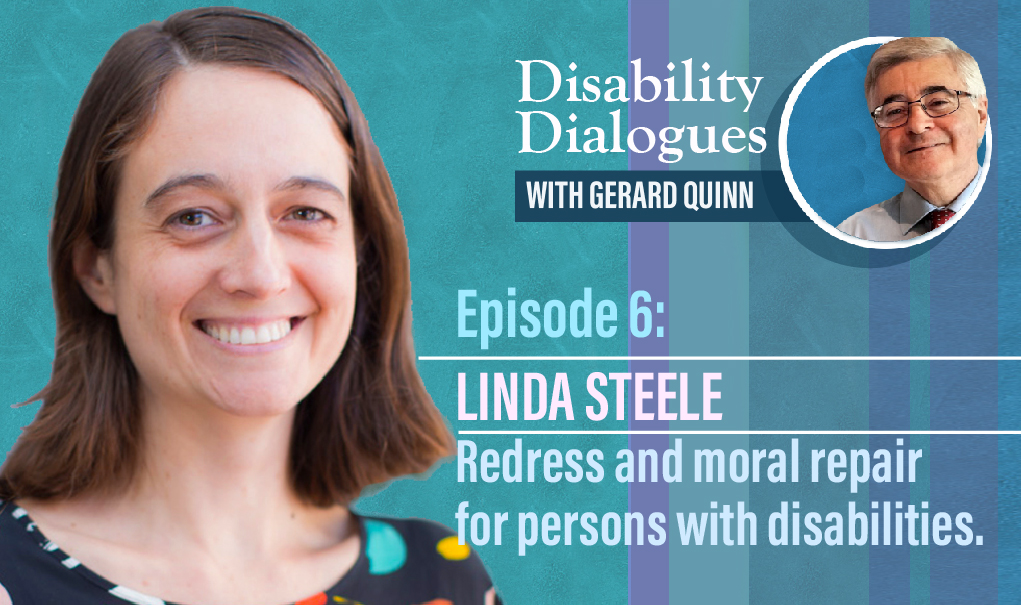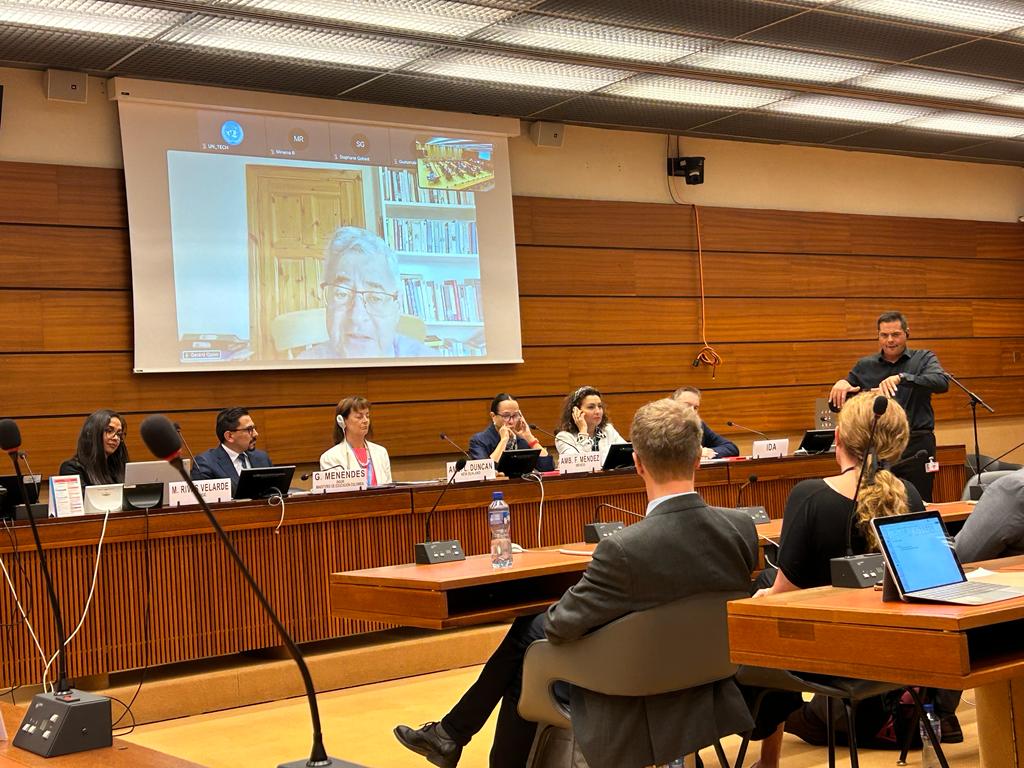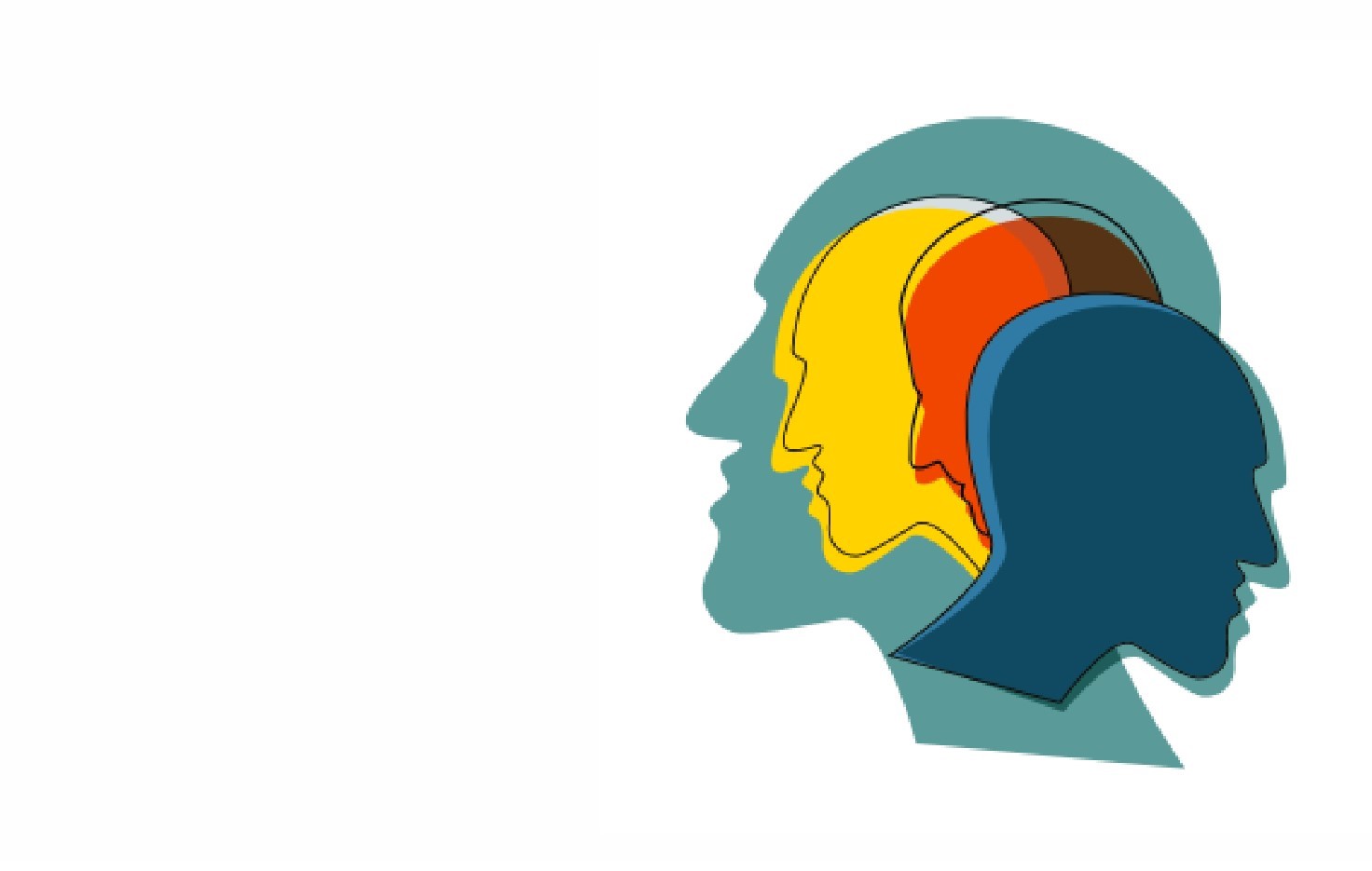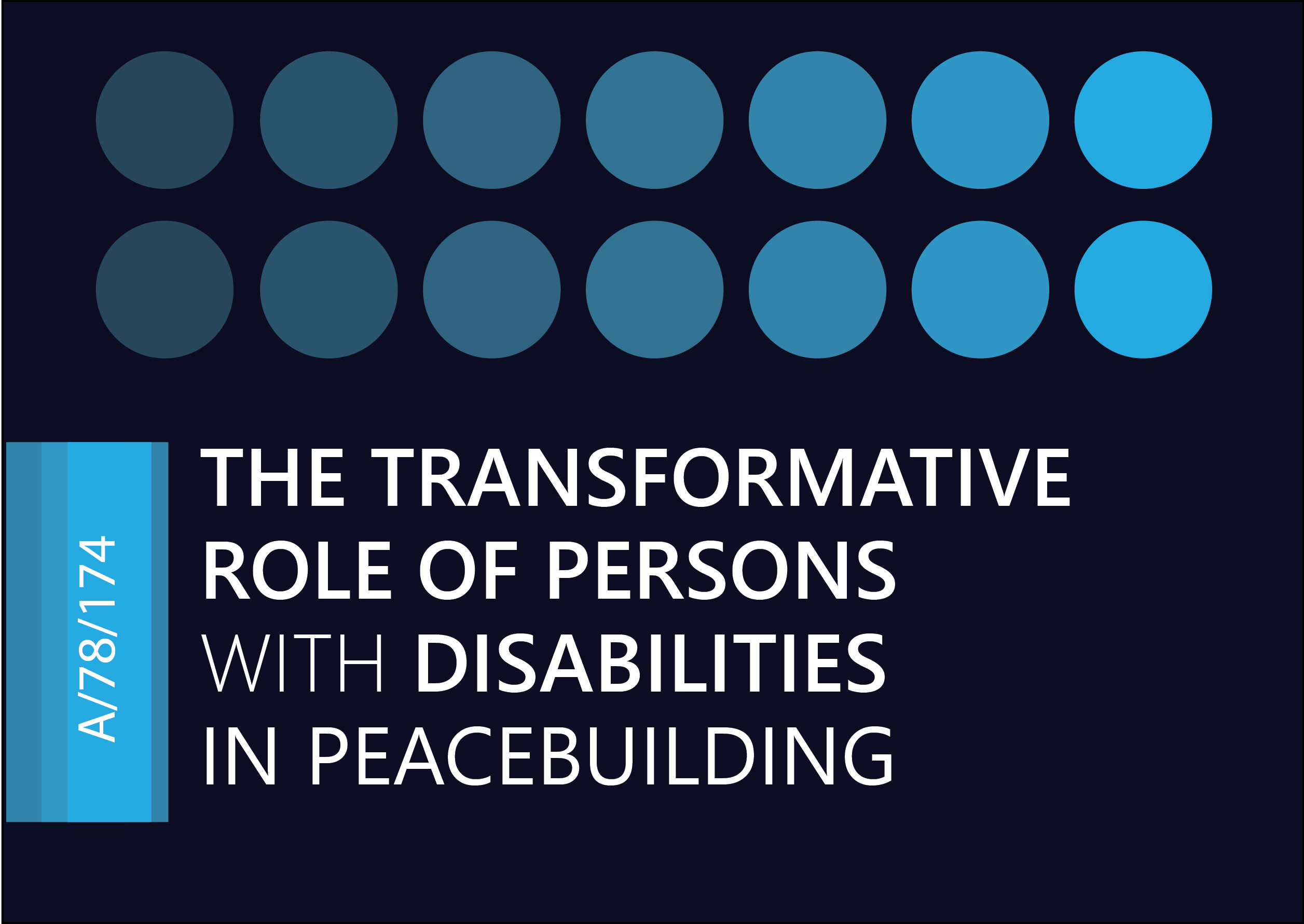Linda Steele's unique research work connects the need for moral repair as a precondition for moving forward in society with disability. Through her writing, she makes arid debates on reparations spring to life.
Transcript
Introduction: Welcome to Disability Dialogues, a series of conversations with leaders and activists from around the world who are advancing the rights of persons with disabilities. In this series, we will hear from people who are playing a significant role in advancing the disability rights agenda in the global system, in their own regions and at home in their own countries. We will explore success stories as well as challenges. I am your host, Gerard Quinn, the UN Special Rapporteur on the Rights of Persons with Disabilities.
Gerard Quinn: In our previous podcast, I interviewed Keely Kat Wells, a young entrepreneur dedicated to promoting disability in the entertainment industries. We explored in that conversation the growing presence of persons with disabilities in movies, TV shows and social media, and what's needed to expand their participation in the online creators economy. That's really about ratifying new conceptions of disability, conceptions that create breathing space for the UN Disability Treaty.
Today, we look at a precondition for any new policy, that is to say, an honest willingness to come to terms with the past. Telling the truth about the past is hard to do in any society and on any issue.
However, recent debates on moral repair for past wrongs, apologies, truth commissions, reparations, criminal prosecutions, memorialization have tended to systematically exclude persons with disabilities. Why? What makes systemic and historic wrongs against them so different from historic wrongs based on creed or ethnicity? How can we meaningfully incorporate a disability perspective into these broad debates? And what difference does it make? One such wrong was the institutionalization of persons with disabilities. Throughout history, and especially in the last hundred years or so, almost everywhere in the world, locked up in prisons, psychiatric institutions, nursing homes, and a wide variety of institutions, people with disabilities became invisible. Their stories of systemic violence, abuse and neglect became normalized and ignored with their personhood stripped away from them. In these settings, people with disabilities experienced what amounted to a civil death. To discuss this and how to achieve moral repair for people with disabilities, I'm joined by Linda Steele, Associate Professor of Law at the University of Technology in Sydney, Australia. My recent report as UN Special Rapporteur on Peace Building and Disability, builds substantially on her work about moral repair. She's one of the few in the world who directly connects the need for moral repair as a precondition for moving forward in society to the rights of persons with disabilities.
Many of you will have noticed that the UN disability Treaty recently ventured its own opinion on the issue of reparations in the context of deinstitutionalization. So the issues are not academic, they're very, very real. Linda, you're very welcome.
Linda Steele: Hi, Gerard. Thanks for having me on your podcast.
GQ: So Linda, we usually start by asking guests, just to say a few words about themselves, your early life, your education, and particularly the influences that guided you on your career path. Over to you, Linda.
LS: Thanks, Gerard. I'd just like to begin by acknowledging that I'm participating in this podcast from the lands of the Wadi Wadi people of the Darwal country and pay respect to their elders, past and present. So thank you so much for having me in conversation with you. Probably my entry into research and advocacy on disability rights began with my first job as a lawyer. After I studied my law degree, I worked at a community legal center for people with intellectual disability. And it was in that job that I learned more about the diverse experiences of people with intellectual disability and the kinds of injustices they experience. And one thing that really struck me, was that many of the injustices that people with intellectual disability experienced were actually enabled by law. Violence against people with disability wasn't only illegal assault or sexual assault, it was also the use of restrictive practices locking people in a room, and sedating them, tying them to a chair or bed. What really surprised me about this was that, when I studied law, we focused more on how we could use the law to right wrongs or find redress or remedies for people when they had experienced some kind of injustice beyond the legal system and the justice system.
What I learned in this job was that the laws, the legal injustice system, and us as lawyers are also part of the problem of the violence and other injustice that people with intellectual disability experience. And that really sent me on a path of trying to make broader society and the government more aware of the way in which the laws they design actually result in injustice to people with disability. The other thing that I learned about in that job that was really important was the significance of disability segregation. In the law firm, legal center where I worked, we had colleagues who had intellectual people with intellectual disability who were working on proper wages as community educators and project workers. And that was so important to be working alongside people with intellectual disability as well as having clients with intellectual disability. That was such a big contrast to the broader community where the main employment options for people with intellectual disability were called sheltered workshops or supported employment, where people are paid very low wages as sub minimum wages and have little choice about their work conditions or little opportunity to progress in their careers.
The role of law in shaping the injustices and violence against people with disability and the broader segregation were issues that became a focus when I moved into becoming an academic and doing research on disability rights issues and had a big focus on looking at the different forms of legal violence that people with disability experience, particularly sterilization and restrictive practices. In doing that research I kept on coming back to this challenge of if law allows these injustices to occur, it's very difficult to then turn to law and the justice system for some kind of recognition and redress for those harms.
GQ: That's totally fascinating, Linda. And it's a good advertisement for beginning a career in community law because you've come to terms with the double edged nature of law as an engine of injustice but also as a potential engine of justice. Can I ask you why, in your view, is the past important and how do we as a society come to terms with the past? Do you think we need to? As a precondition for moving forward?
LS: Often there's the assumption that institutions are a kind of historical artifact and that in closing the doors and demolishing those buildings or using them for something else. That's the moment of justice and we've actually moved on. Now people with disability are in the community and everything's much better, but the past that keeps on shaping the present. We know that, people who had those experiences of institutionalization continue to be impacted by their time in the institutions, both psychologically but also in terms of their health and their social and economic opportunities as well. We also know that families and generations of... Of people associated with those who were institutionalized continue to be impacted in quite complex ways because often when people moved into institutions there might have been limited alternatives available to family members.
Institutionalization continues to shape the present because we have policies and laws that replicate many of the dynamics of institutions. There might not be big buildings, but we have group homes. Which are smaller residential settings where people with disability continue to be congregated and segregated from the community, continue to have little choice in the supports they receive in their daily activities. They might not have a lot of privacy. They might not be able to choose who they live with. And they're also exposed to... Violence in those settings as well. We also have laws such as laws that allows sterilization and sub minimum wages and restrictive practices and forced mental health treatment. And many of the practices that happened in the big buildings in the institutions still carry on in the community as well.
In that way, the past continues to... Shape the present, in terms of people's experiences, and the legal systems as well, and also in community attitudes as well. If people with disability continue to be segregated and if we as a society can fail to recognize the wrongs of institutionalization, we are still supporting the idea that what happened in institutions was okay or at least not as bad as other experiences that other groups have had. So for all of those reasons, recognizing the past and its impacts in the present is very important. But it's, it's a real challenge in terms of institutionalization to do that because we haven't, in many countries we haven't had government recognition of the wrongs of institutions. There haven't been truth commissions or redress schemes or national apologies in the ways that we've seen in relation to other systemic wrongs such as institutional child sexual abuse, for example. And also just more broadly, we don't as a community recognize institutions as wrong or harmful. For example, children don't learn about institutions at school. There's not a lot of children's books or movies or TV shows about these kinds of experiences. It doesn't become part of our general knowledge that this occurred.
Also Ableism continues to permeate laws, as I mentioned before, but also the professional practices and education of social care, medical and legal professionals who were very much involved in supporting institutionalization and what happened in those professional associations and our universities have not necessarily recognized how they contributed to those wrongs. As well as laws continuing to endure into the present. Also, a lot of institutions were run by governments, but some were run by charities. And a lot of, at least in Australia, a lot of those charities from, from that time have in the past decade or so rebranded and renamed with very inclusive and empowering names that really distance them from their pasts as well. So in all these different ways we see not only distancing from the past, but a kind of collective denial that actually anything wrong ever occurred, I think for all those reasons, because of the way in which the past shapes the present, but also because of the ongoing denial that that past is actually wrong. We do need processes to facilitate people being able to tell their stories and their experiences, but beyond that, for the community and the government to listen and be prepared to have their understanding of disability and institutions challenged as well.
GQ: That really shines through in a lot of your research and academic work, the overhang of the past on the present, unless we can find ways to adequately deal with it and put distance between ourselves and it. You've done a lot of work, Linda, on the memorialization of past wrongs in what you call sites of conscience, such as former institutions or nursing homes. Can you explain to our listeners what this means and why is memorialization so important?
LS: As I mentioned earlier, when institutions close, those buildings might be reused for other purposes, or they might be demolished. That point of closure is often seen as the moment of justice, when we can kind of move forward and forget about what has occurred, or at least it's not relevant to the present. The practice of memorialization or commemoration is a way that communities and societies can resist the denial of the past and its wrongs. And this might be activities or events or special days allocated to remembering and recognizing past harm. Through those public activities, it's possible for people's individual experiences of harm to be transformed into some kind of shared or collective memory. The idea of sights of conscience kind of draws on that idea of memorializing or collectively recognizing the past, but it does so in a way that is specific to a particular place of harm. That might be an institution, a former disability institution, and it's about individuals who have had experience of that place or their allies or family members or advocates presenting a perspective of that place that is informed by lived experiences and informed by an honest account of the harms that occurred there.
And it's not simply to present that as a history lesson, but to connect that to the present day, so to make a deliberate connection between what has happened in the past and current human rights or social justice issues. In the context of disability institutions, a site of conscience in relation to a particular former institution might present experiences of the institution as a way to open up a discussion about disability inclusion in the present or about equality in the community or issues such as restrictive practices or discrimination against people with disability. The place-based nature of a site of conscience gives people who might not necessarily have a deep understanding of that place, some kind of material context in which to understand the stories or give some visual reference point and experience for what they're hearing and learning about.
When I spoke with Council for Intellectual Disability and shared all my exciting learnings and ideas, they said, well, you know. It sounds really great, but we actually need to know what do people with intellectual disability think? What do they want the public to know and remember? And additionally, there's likely to be diverse views, and some people might want that past remembered and the public have to have access to those experiences, but other people might not, and some people might just want the places burnt down. That was a really important moment as a researcher you can get excited about ideas, but we always have to center the perspectives and the involvement of people with intellectual disability themselves in these kinds of projects and be driven by what they want. And that research was really important because it highlighted that people with intellectual disability do want the public to remember and learn about disability institutions? But the people we spoke to emphasized how complex a history that was for people with intellectual disability and their family members as well, and the importance of approaching any kind of memorialization or public education in a way that is... Trauma-informed and recognizes the complexity and is accessible as well to people with intellectual disability.
GQ: I do notice that in your recent paper on moral repair, which is tremendous, you mentioned the role of art and artists in remembering the past. Could you say a few words about that, please?
LS: Often we... Think of communication in terms of words and text in order to convey complex ideas, particularly as lawyers and researchers. But art has been found to be a really effective medium through which to communicate the complexity of people's lived experiences, it doesn't need to be reduced to a singular meaning, which words often involve and allows visual representation. Music vocal expression that is not in the form of words and that has been found to be really effective in engaging a broader public in understanding experiences that often cannot be captured in words because they are so traumatic and so complex.
GQ: And can you tell our listeners, what's the spread of tools available to achieve moral repair for past wrongs?
LS: The tools we have include reparations, which are kind of remedies or a redress that are not simply trying to correct a past injustice, but are looking at how we can prevent repetition of those harms in the future. That might involve rehabilitation or compensation, which can... Be more focused on an individual. But it also involves collective reparations, which can be providing support to an entire community that's been impacted. We can also draw on guarantees of non repetition, or law reform, which is when the response is specifically focused on changing institutions or laws or practices to make sure harm won't occur. And also satisfaction, which can be apologies or truth telling or memorialization, which is about providing public recognition that wrong has occurred and providing that reminder to the public and to the government.
We also have truth commissions and truth telling which provides a forum for people who have survivors in their communities to tell their experiences of a particular injustice. Not only so there's a public record of what has occurred from their perspective, but, additionally, it is an opportunity for the community and the government and perpetrators to listen to their experiences as a way to understand And reckon with what has happened.
GQ: Right. Do you think one of our core problems around the world is that institutionalization is not universally seen as a wrong? Or could things like truth commissions and apologies help to reverse that?
LS: There's a lot of recognition that institutionalization is wrong. And that people with disability should be part of our communities and should have choices as to where they live. But beyond that, I think that there's also not necessarily a lot of understanding in the general public about the kinds of experiences in disability institutions or worse still, there is some visibility around those. There's a lack of recognition that institutionalization is wrong, but that Sits on top of a failure to recognize people with disability as full humans.
GQ: There's a lot of controversy about reparations in other contexts. How do you see that debate playing out in the context of disability?
LS: The idea of reparations has been around for a number of decades in the transitional justice context. But as you mentioned, reparations is not something that we hear much about in the context of disability human rights. The debates have really been focused more on how people can access, remedies or redress through the courts or through complaint systems. Only recently has it been looked at by the CRPD committee in its 2022 Guidelines on Deinstitutionalization, so it is a really new discussion in the UN human rights system. But that said, people with disability themselves have been calling for reparations for decades.
I know in the Australian context there's been demands for reparations for institutional violence and sterilization Over the past decade. So I think that there are challenges in bringing reparations into the disability human rights context in terms of working out what that means. When I've done research around reparations in the aged care context, the argument I often get is, well, sounds really important and necessary, but aged care facilities aren't closing anytime soon, so how can you be delivering reparations for something you say is a past wrong when that wrong just keeps on happening?
GQ: Thank you. And I hear you loud and clear about the right to access to justice and how maybe you could hang notions of reparations under that rubric. Could you broaden it a bit? For example, article four of the treaty talks about the need to abolish laws, customs and practices and say implicitly at least, that requires a program of moral repair, if not explicitly.
LS: Reparations, I think, kind of sits as an umbrella over the CRPD as a whole. The common... characterization of the CRPD as a kind of new paradigm or a paradigm shifting instrument in terms of how society and governments treat people with disability, then I think we can see reparations as being a necessary ongoing implementation of the CRPD. And also, obviously, there are other articles, such as Article 19 as well, with independent living and community inclusion access to justice, as you've mentioned, and also articles related to torture and violence as well are ones that where reparations would be particularly important.
GQ: you've done a lot of work on the rights of older people as well as the rights of people with disabilities. What kind of parallels do you see between the two and how relevant is moral repair... To both? Are there lessons we can learn from one as applied to the other?
LS: I've done research with Kate Swaffer who is a dementia rights activist, on human rights of people living with dementia and reparations in aged care facilities or care homes. And what's really been striking in that research that resonates with the disability institution context is... The way in which... People living with dementia or older people are dehumanized. I think the parallels around ageism and ableism or where they intersect, particularly with people living with dementia, is really profound. And additionally, the fact that both groups experience denial of legal capacity and that enables people to be locked up, people to be subject to restrictive practices, to forced medication, and also the fact that these are two groups where institutions are a prominent form of accommodation and support. That said, I think there are some differences in terms of how progressed the critical thinking and scholarship is, but also more relevant for our discussions.
The human rights debates are much more progressed in the disability context. I know there has been a lot of developments in the past few years in terms of older people more explicit recognition of deprivation of liberty, of restraint of care homes as institutions, and so on, but... It often feels to say things in the context of older people that might be just routine human rights approaches in the disability context. To say them in relation to older people and their rights often seems quite radical or provocative. And that never stops surprising me how far we still have to go.
GQ: Wonderful. Thank you so much, Linda.
LS: Thank you so much for having me on your podcast.
Listeners, you can read Linda's work following the links provided below. My Twitter handle is @srdisability. Do get in touch with us with ideas about topics or potential interviewees. Well, that's it for this episode of Disability Dialogues. The executive producer is Hernan Bonomo. Original sound design and editing is by Jeremy Bouquet and Thomas Kuzberg from the Bulle Media Podcast Agency. My name is Gerard Quinn, and until the next episode, goodbye.







